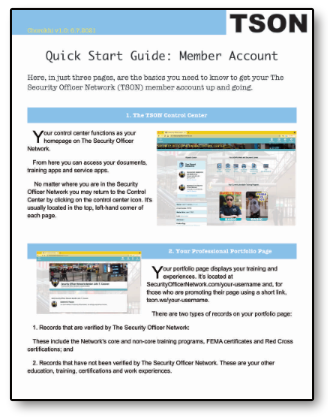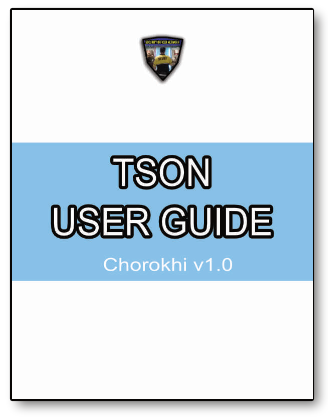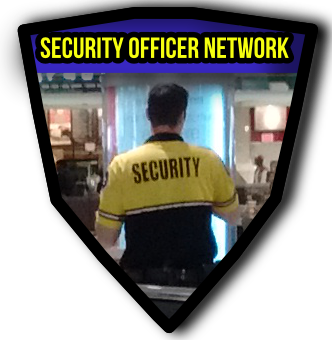There are two types of security officer jobs: there’s the officer who is just doing security as a filler job for extra income—somewhere where he can get paid to study for college, prepare for his next job, get out of the house during retirement or otherwise just get paid money to quiet quit—without needing to worry about a boss who isn’t on board with quiet quitting. This isn’t a security professional inasmuch as it is an extra-income guy who is wisely taking advantage of the world’s smartest job hack.
Then, there’s the professional security officer: the individual who sees the opportunities in private security and wants to make his living in the industry. More on why this is the perfect time to become a security professional in a near-future video, so like and subscribe.
If you are Group One, and while on shift you are not in regular purview of the public, then this article is not exactly for you. You may, if you wish, be dismissed.
You are still here? You want to become a true professional and are in public purview—as opposed to a solo shift that doesn’t interact with the public—or you are assigned to a security sensitive site such as vital infrastructure, the office of a defense contractor, a utility generation or transmission facility, a data center, or perhaps a university research facility etc., then please stand by; this advice is for you.
It addresses a contagion that threatens the professionalism of many would-be security professionals. It has likely infected and is currently compromising the professionalism of many officers, right now, as we speak.
It’s the action of taking out a phone, tapping a social media application, and taking that first swipe, followed by scrolling, scrolling and more scrolling.
Even the unarmed officer who has no responsibility beyond that of being in the public purview and being a professional observer, and a would-be witness for the state, compromises her professionalism once she taps on that social media app and begins to scroll. Her eyes drop to the phone, the scrolling commences, she becomes anesthetized into someone else’s reality—effectively no longer observing the public in the real world. The several seconds it takes to disengage from the device and return to the real world potentially compromises her otherwise credible testimony, and, in court, this provides the opposition’s defense with a real opportunity to attack the officer’s statements.
So, this has been a rather obvious observation; but, let’s take it to the next level.
If I am a security supervisor and I arrive on my high-profile security site to find my officer scrolling on his phone, here’s what I see: a tracking device.
Is my officer posting details of his shift on social media? Maybe he’s trying to go viral—while on the job. That’s a risk I can’t take. If my client sees his viral post—from their site—then my chances for keeping the contract just took a bit of a bad turn.
Even if he’s disciplined enough to not post, more likely than not, the officer hasn’t disengaged his device’s ad identifier and his location data is available commercially. Big data brokers are becoming skilled at deanonymizing this information and matching up location and identification data.
I need my officer to think like a security professional. When he produces commercially-available tracking data he’s creating a rich source of information that’s available to any number of entities with ill intent. Maybe it’s a competitor security firm that’s buying up tracking data for the purposes of locating security clients, or perhaps it’s more sinister such as a competitor of my client who buys the commercially available tracking data and then profiles essential personnel—including the security staff.
Perhaps it’s a multi-national competitor that is unconstrained by the ethical ethos of local laws, or even one that’s backed by a nation state and which seeks to harvest intellectual property and trade secrets. Because of his access to the site, the officer is an inviting target for everything from honeypotting to direct blackmail or straight up recruitment.
Or, perhaps my officer seeks to become a personal protection officer such as a bodyguard or executive protection agent. His habit of dropping commercially available tracking data will provide the perfect intel gathering opportunity to those such as the professional gossip media who seek to locate and capture the movements of the high-profile person to whom the officer is assigned to protect.
I need the officer to think about these things—right now. If not, his bad habits will become ingrained and can cap his ability to grow into a true professional. Simply put, his social media addiction WILL inhibit my ability to authorize him for some of the higher-paying assignments.
Staying off social media is easier said than done. For too many, it’s an addiction. Each day as the professional officer completes his shift, he needs to thoughtfully inventory his actions and ask himself, “Did I scroll social media while on the job today?” and, if so, resolve to do better the next day.
Evolving into a true professional takes place a step at a time.
Maybe, you are an aspiring security consultant. If so, be sure to note this concern, this is a finding that you can put into your reports: “Security officers have personal devices with live tracking ids and are generating commercially available location tracking data.”
If you are endeavoring to become a true security professional consider joining us at The Security Officer Network; it’s the professional security officer’s status symbol of choice. Upon achieving bronze member status, you are eligible for Part One of The Professional Security Officer training course and are also eligible for the Security Consultant training as well.
I will see you there.



